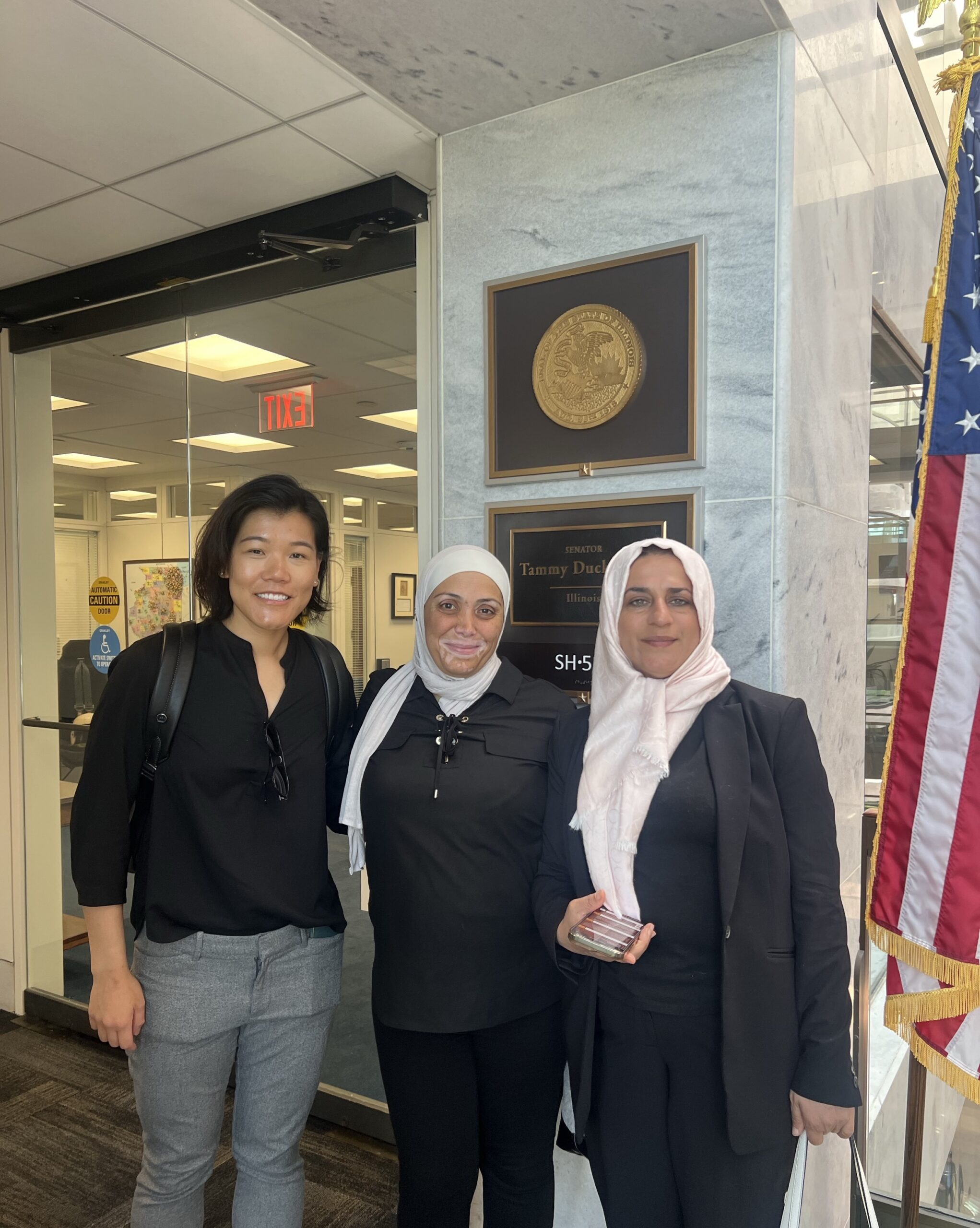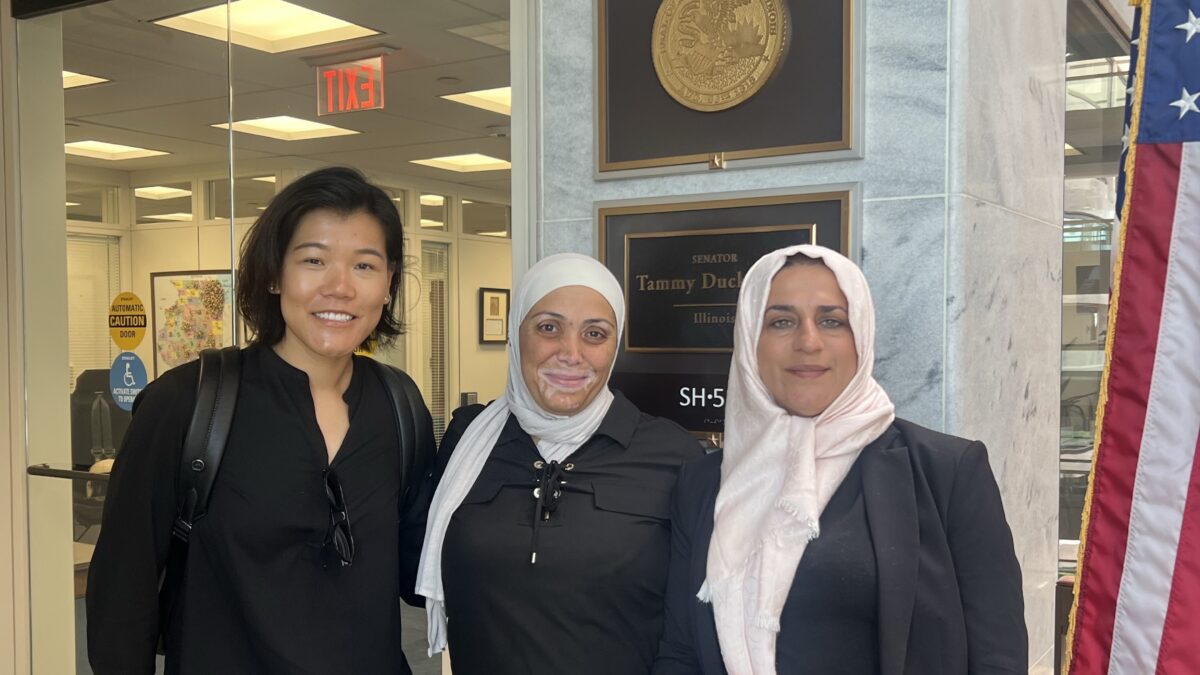The Crushing Weight of Debt Just for Seeking Care: Manal’s Story
Meet Manal
Manal Abdullah is a proud mother of three, living in Illinois, and she lives with diabetes—a chronic illness that requires daily care and constant management.
In April 2025, Manal shared her story in Washington, D.C. and joined storytellers and health justice advocates from across the country to show the impact of medical debt and call for changes to the health system, starting in her home state.

I’m here to share how the weight of medical debt—and a system full of barriers—nearly broke me.
Years ago, I had an accident. I was uninsured, and that moment changed everything. It led to ongoing health complications that landed me in emergency rooms again and again—each visit adding to a growing pile of medical bills. Before I knew it, I owed over $17,000. That number isn’t just debt—it’s fear, stress, and a weight I carry with me every single day.
Facing Barriers Alone
When I reached out to the hospital for help, I was shocked by how little support was available. There were no interpretation services—despite English not being my first language. I had to navigate complicated medical and financial documents alone.
No one ever told me financial assistance existed—not once. I only learned I might qualify for help after I overheard a conversation at a family gathering. So, I called the hospital, finally feeling a glimmer of hope. But the process was overwhelming. I couldn’t get anyone to pick up the phone to schedule an appointment. When I finally spoke to someone, they told me it was too late. My debt had already been sent to collections.
Hearing that shattered me. I was already struggling with my health and doing my best to care for my children. We were barely making ends meet, and now debt collectors were calling constantly. My credit score plummeted. I couldn’t qualify for basic support.
Even when I got approved for Medicaid, the hospital said they couldn’t help with my past bills—I had missed the eligibility window; another deadline no one had told me about.
It felt like every door was closed. Every time I asked for help, there was another barrier, another “no.” Meanwhile, my health kept declining. Because stress makes everything worse.
I was stuck. And I was trying to survive in a system that wasn’t built for people like me.
Why Real Health Care Reform is Needed
This is where the system failed me—and it’s where decision-makers need to step in. No one should have to fight this hard just to stay alive. No one should be left in the dark about financial assistance. And no one should be denied help because of a language barrier or a deadline they didn’t even know existed.
This is exactly why the country needs comprehensive, compassionate health care. Not just for some—for everyone.
We need hospitals to provide language support. We need clear, proactive communication about financial help. And we need a system that puts patients first—not paperwork or policies that push people deeper into debt. Because no one should be punished for being sick. No mother should have to choose between medication and feeding her kids. And no family should live under the crushing weight of debt just for seeking care.
We can do better. We must do better.
I’m not just speaking for myself—I’m speaking for every family struggling in silence. It’s time for change. It’s time for care. It’s time for Congress to lead the way.

